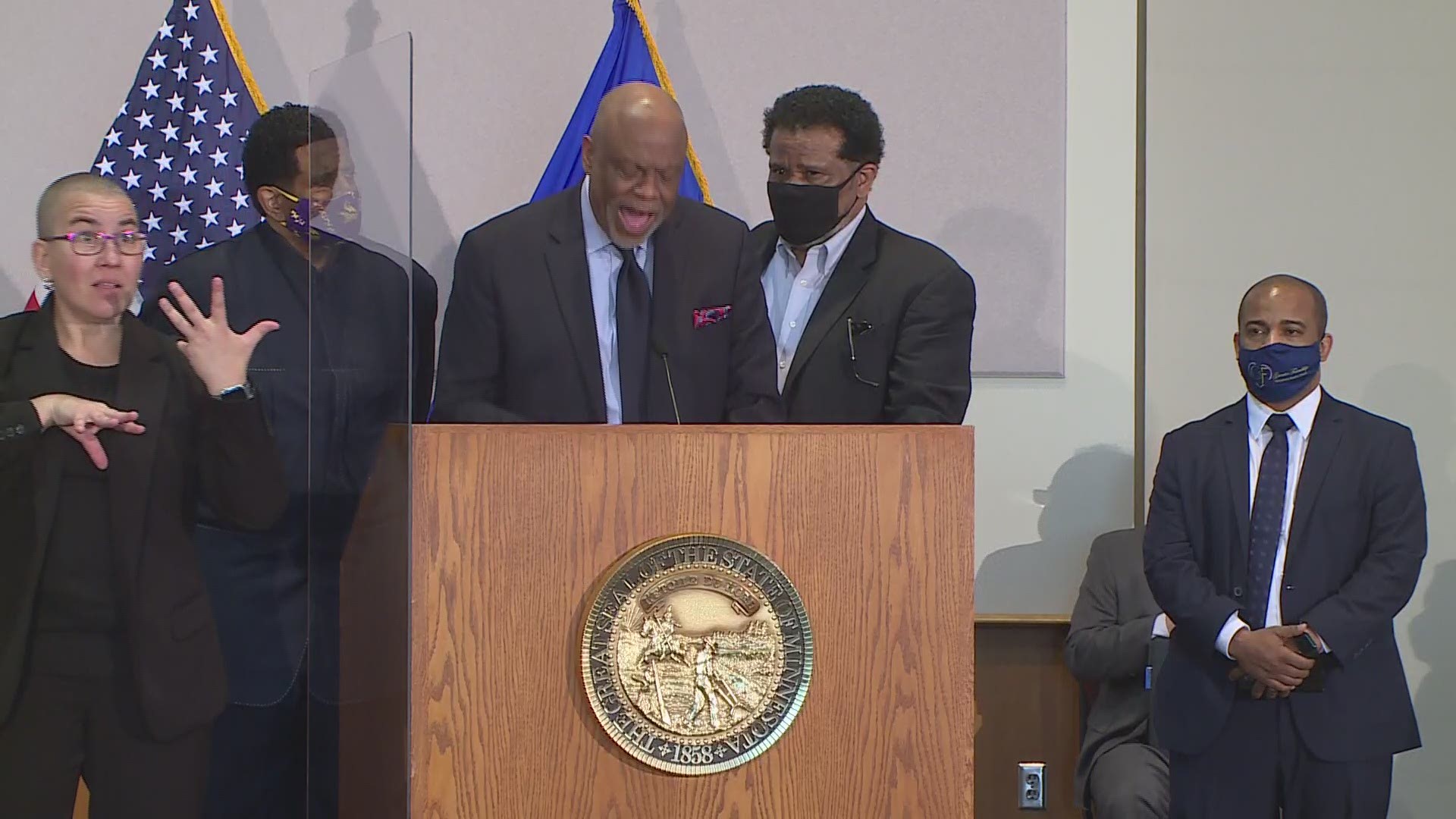ST PAUL, Minn. — The DFL-controlled Minnesota House passed police reforms this year. The GOP-controlled Senate didn't hold hearings on any police accountability measures, let alone pass them.
So, the stage shifted to the Public Safety Conference Committee, where a small group of House members have tried to persuade a small number of senators to adopt some of the reforms as part of a final House-Senate compromise version of the public safety bill.
Thus far, the Republican senators on that panel haven't budged. They said they believe the reforms passed last summer in the wake of the killing of George Floyd were sufficient. And the top Republican at the State Capitol, Senate Majority Leader Paul Gazelka of Nisswa has also embraced that stance.
Gov. Tim Walz and Democratic legislators, on the other hand, assert the 2020 reforms were only the start, and the recent killing of Daunte Wright is only the latest example of the need to change how police interact with Black Minnesotans and other people of color.
"Why would Minnesota not seize the moment and become the best state in the nation on equity? Why would you not add that to your accomplishments?" Walz told state capitol reporters Wednesday.
Walz summoned Christian, Jewish and Muslim faith leaders and Black business owners to speak the media as part of a concerted push to win over the reluctant Republicans.
"Accountability! Those who serve must be held responsible to perform at the highest levels of professional behavior," the Rev. Alfred Babington-Johnson of the His Work Now ministerial alliance told reporters.
"Compassion – we must all treat one another with a sense of common humanity."
The reforms that passed the House include:
- Civilian oversight boards for police agencies
- Body camera footage access for families of those killed by officers
- Stricter rules for no-knock search warrants
- Funding an early warning system to spot problem officers
- Decriminalizing failure to pay fines and court fees
- Restricting traffic stops for minor equipment violations
- Barring officers from belonging to white supremacist hate groups
Proponents argue that changing the approach to traffic stops could prevent the types of interactions that disproportionately lead to more serious charges, or injuries and death. The House Public Safety bill also includes corrections system reforms that would provide added protections for prison and jail inmates who are sick or injured.
"The good news is we are in these conference committees, and the good news is we have provided several offers to the GOP Senate," Rep. Cedric Frazier, a Democrat from New Hope who serves on the public safety conference committee, explained.
"The bad news is they have not responded to any of those offers. They have provided several excuses for not responding. None that prevent them to responding to the pain, the grief and heartache of community members that have been crying out for decades for change."
Republican resistance
But the lead Senator on the conference committee, Sen. Bill Ingebrigtsen of Alexandria, has argued against making statewide changes in response to the death of George Floyd in the custody of Minneapolis Police.
He argues that officers who use excessive force are rare exceptions and he believes the conviction of former officer Derek Chauvin last month is proof the system is working the way it should.
"Those who still say justice hasn't been served -- I just totally reject the fact that justice still has not been served. I just can't understand that." Sen. Ingebrigtsen, a former sheriff, told fellow committee members earlier this week.
Senate Majority Leader Gazelka have several times repeated the line that "justice has been served" and told reporters April 29 that Chauvin's conviction took the pressure off the legislature to act this year.
"Once that conviction happened the pressure here went down dramatically because people thought they got a fair judgment there," Sen. Gazelka explained.
"And so, the combination of that with the fact we passed major police accountability reforms last year. It doesn’t feel as urgent as making sure we get the budget done so our state keeps open."
The reforms passed last summer include:
- Banning choke holds by police
- Adopting a duty to intervene as standard policy
- Barring cities from paying for warrior-style training for officers
- Adding two additional citizen members to the police standards board
- Creating a database to better track excessive force complaints
The GOP leader said the Senate will not accept any of the reforms that were rejected last summer, including changes to qualified immunity for officers.
"Too many people, I feel like, have thrown the police under the bus. The police in Minnesota, many are very demoralized because of the lack of appreciation for the work they do."
Lt. Gov. Peggy Flanagan Wednesday rejected the notion that Minnesota should pause on new police reforms.
"The death of George Floyd and the death of Daunte Wright did not occur within a vacuum, but in a larger truth that black men are disproportionately killed by law enforcement," Flanagan remarked.
"Our work is not done until everyone gets to go home safely at the end of the day."

